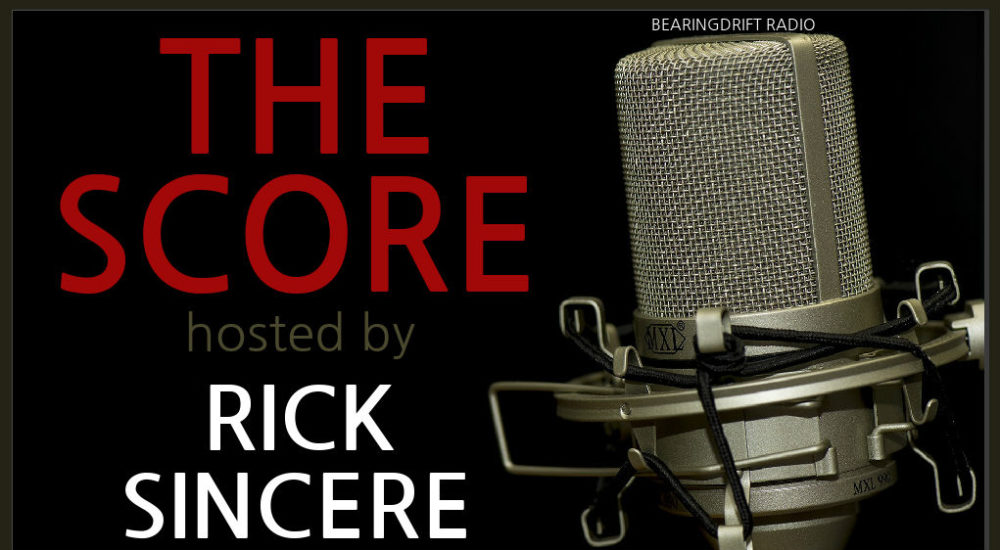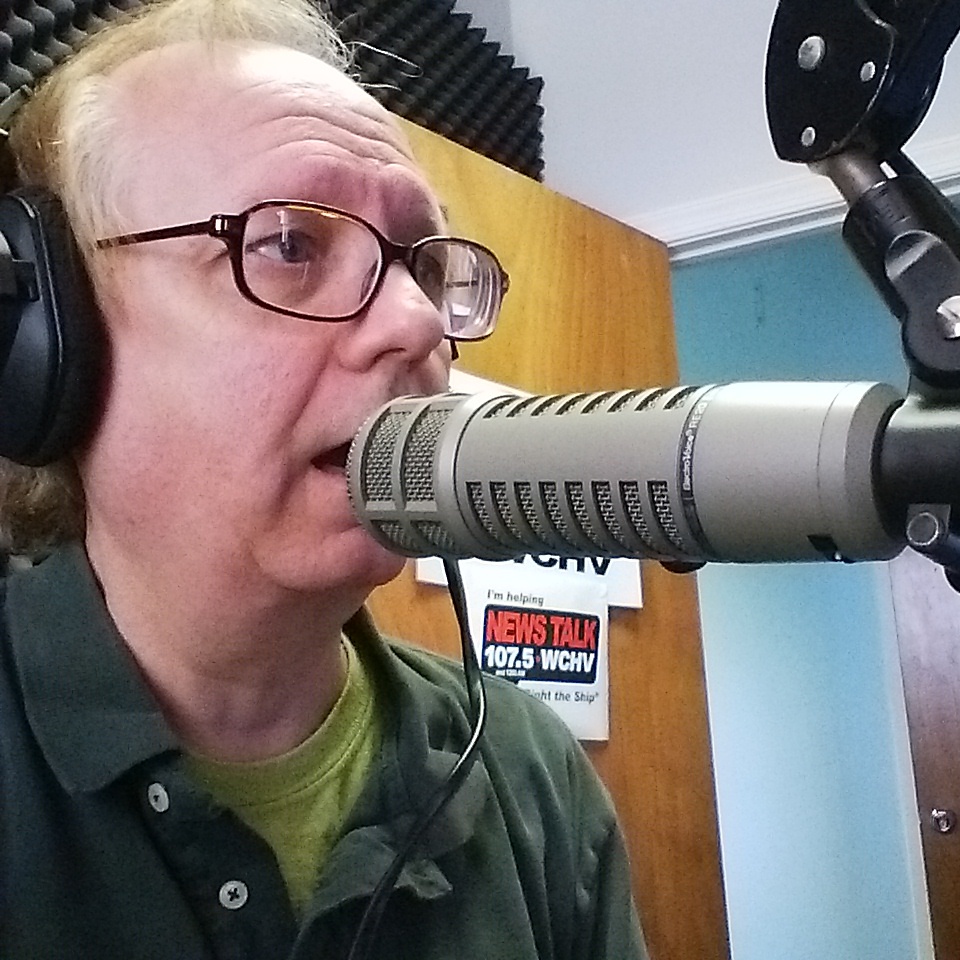The Score: Remembering Apollo 11 Fifty Years Later
This week on The Score: We look back at the Apollo 11 moon landing, which took place 50 years ago this week. In Part 1, we talk with a space enthusiast and two astronomers. In Part 2, we hear a film review and talk about the politics of the space program, the technology available in the 1960s, and the future of commercializing space.
This is a special edition of The Score, marking the 50th anniversary of the first time men walked on the moon. I had the pleasure of speaking with an array of experts — astronomers, engineers, entrepreneurs, political scientists — to plumb their memories about the Apollo 11 moon landing on July 20, 1969, and what preceded it, what we learned from it, and what still may come.
Certain dates, depending on one’s age, are embedded in our collective memory. For our grandparents, it was December 7, 1941. For others, it is November 22, 1963, or September 11, 2001. Anyone born earlier than about 1964 remembers July 20, 1969. No doubt younger generations, if not glued to their smartphones when it happens, will remember the day the first woman lands on Mars.
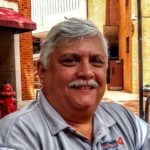 My first conversation is with Tom McCrystal, chief technology officer at Creative Perspectives in Charlottesville and a long-time space enthusiast. I asked him how he became interested in space travel and where he was on July 20, 1969.
My first conversation is with Tom McCrystal, chief technology officer at Creative Perspectives in Charlottesville and a long-time space enthusiast. I asked him how he became interested in space travel and where he was on July 20, 1969.
I queried Tom about the origins of the Apollo program.
UVA Astronomers
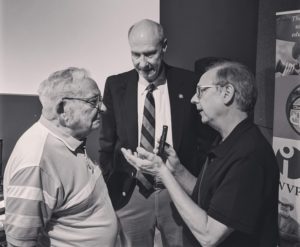 I had a unique and exciting opportunity to talk to two astronomers about the moon landing, including one who participated in the Apollo program, Dr. Laurence Fredrick, former chairman of the Astronomy Department at the University of Virginia. Included in our conversation is current UVA professor Edward Murphy, who points out during the interview that Dr. Fredrick, in addition to serving on the committee that chose the site of the Apollo 11 landing (“Tranquility Base here”), wrote the concept paper that described what eventually became the Hubbell Space Telescope.
I had a unique and exciting opportunity to talk to two astronomers about the moon landing, including one who participated in the Apollo program, Dr. Laurence Fredrick, former chairman of the Astronomy Department at the University of Virginia. Included in our conversation is current UVA professor Edward Murphy, who points out during the interview that Dr. Fredrick, in addition to serving on the committee that chose the site of the Apollo 11 landing (“Tranquility Base here”), wrote the concept paper that described what eventually became the Hubbell Space Telescope.
The two of them spoke at a screening of an excerpt of the PBS documentary film, Chasing the Moon, hosted by the local public TV affiliates WVPT and WHTJ and Light House Studio at the Vinegar Hill Theater in Charlottesville. Murphy introduced the film and Fredrick (who will celebrate his 92nd birthday next month) was one of several panelists who discussed the history of the space program and the contributions of current UVA faculty and students to space exploration.
Larry Fredrick is co-author (with Robert H. Baker) of An Introduction to Astronomy. Ed Murphy is the lecturer behind Our Night Sky from the Great Courses; he is on Twitter as @emm8x.
Two Apollo Movies
The 50th anniversary of the first Apollo moon landing has inspired a huge number of movies, both documentaries and narrative features, including Chasing the Moon from PBS, noted above.
For this special episode of The Score, our film critic, Tim Hulsey, takes a look at First Man, starring Ryan Gosling and Clair Foy, which received one Academy Award (Visual Effects) and three other nominations, and the recent documentary from CNN, Apollo 11. He likes them both.
1960s Politics
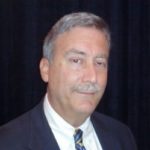 Over the past decade, the UVA Center for Politics has been looking at events of the 1960s, each marking a 50th anniversary. I couldn’t pass up the opportunity to talk to the Center’s director, Larry Sabato, about the politics of the space program during that tumultuous decade, in particular the role of congressional appropriators in response to presidential requests for billions of dollars for a program that seemed to skeptics to be pie in the sky.
Over the past decade, the UVA Center for Politics has been looking at events of the 1960s, each marking a 50th anniversary. I couldn’t pass up the opportunity to talk to the Center’s director, Larry Sabato, about the politics of the space program during that tumultuous decade, in particular the role of congressional appropriators in response to presidential requests for billions of dollars for a program that seemed to skeptics to be pie in the sky.
Larry Sabato is the author of many books and monographs, including Peepshow: Media and Politics in an Age of Scandal (with Mark Stencel and S. Robert Lichter, 2001), Feeding Frenzy: Attack Journalism and American Politics (2001), Pendulum Swing (2011), and The Kennedy Half-Century: The Presidency, Assassination, and Lasting Legacy of John F. Kennedy (2013).
We spoke by telephone a few days ago. You can find him on Twitter as @LarrySabato; the UVA Center for Politics’ Twitter feed is @Center4Politics.
Scramjets and Computers
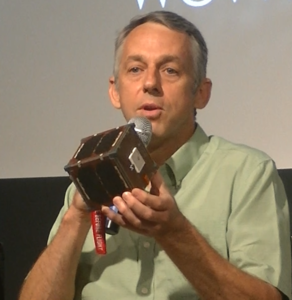 Christopher Goyne is an aeronautical engineer at the University of Virginia. He is the recipient of the Sigma Gamma Tau Outstanding Aerospace Professor Award, among other honors. He recently supervised several UVA students as they designed and launched small satellites (called “CubeSats“) to “measure atmospheric properties for NASA and transmit data by radio.”
Christopher Goyne is an aeronautical engineer at the University of Virginia. He is the recipient of the Sigma Gamma Tau Outstanding Aerospace Professor Award, among other honors. He recently supervised several UVA students as they designed and launched small satellites (called “CubeSats“) to “measure atmospheric properties for NASA and transmit data by radio.”
After the recent screening of the PBS documentary, Chasing the Moon, I asked him about the technology of the Apollo program. Like Larry Fredrick, he offered that the advances in computing were the most important technological gains of space exploration, advances that not only made the moonshot possible but laid the groundwork for our current digital age.
Commercializing the High Frontier
Charles Chafer is founder and CEO of Space Services, Inc., a commercial enterprise based in Houston, Texas. By way of background, we met in 1975 when he was in college and I was in high school; that year, he was my coach at the Georgetown University Summer Debate Institute.
The high school debate topic that year was “Resolved: That the development and allocation of scarce world resources should be controlled by an international organization.” The affirmative case our team developed, under Charlie’s direction, was based on the visionary science of Princeton physicist Gerard K. O’Neill, who predicted and advocated for the permanent colonization of outer space, in an effort to reduce scarcity by expanding the pool of resources used by earthlings at home and above.
Chafer walked the walk and became involved in space industry soon after graduation. In this interview, we talk about the commercialization of space and also ponder how we have avoided its weaponization.
We spoke by telephone earlier this week about the past and the future of space exploration. One of Space Services subsidiaries, Celestis Inc., which provides memorial space flights and burial in space, is on Twitter as @celestisflights.
Next week’s episode of The Score is still being assembled, but certain to be included will be an interview with Elliott Harding, who has announced his candidacy for the 25th District seat in the Virginia State Senate, currently held by R. Creigh Deeds. Harding is running as an independent against the incumbent Democrat in a two-way race.
In the meantime, I invite Bearing Drift readers (and listeners to The Score) to recount their own memories of the Apollo 11 moon landing in the comments section, below.
